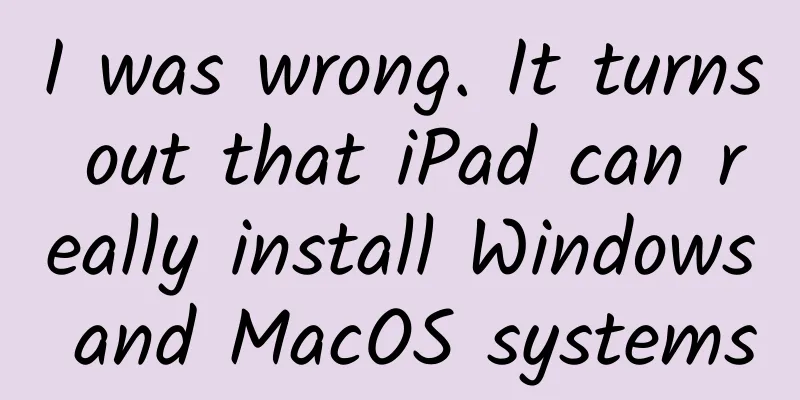National Eye Care Day丨Share these eye protection tips with the ones you care about!

|
Today (June 6) is National Eye Care Day. Eyes are the windows to our souls, but nowadays, the number of myopic people in my country has reached 600 million, and the number of new blind people reaches about 450,000 every year. It's time to clean the "windows of the soul"~ Share these eye protection tips with the ones you care about! (Copyrighted image from the gallery, no permission to reprint) Do you like to play with your phone before going to bed with the lights off? Do you use electronic screens for a long time? These are bad habits that hurt your eyes! Tao Yong, chief ophthalmologist at Beijing Chaoyang Hospital affiliated to Capital Medical University, reminds us that the harm of playing with mobile phones with the lights off should not be underestimated. Playing with mobile phones in a dark environment for a long time will cause the pupils to dilate for a long time, the circulation of tear fluid will be blocked, and acute angle-closure glaucoma may come to you...Be careful, glaucoma can cause blindness! How to reduce the damage of screens to eyes? ① Choose large-screen electronic products as much as possible; ② Pay attention to the distance between the screen and eyes; ③ Do not look at the screen in a dark environment Do you know the “20-20-20 rule” to protect your eyes? After 20 minutes of close eye use, look into the distance 20 feet (6 meters away) for at least 20 seconds to allow your eyes to relax. (Copyrighted image from the gallery, no permission to reprint) How to use your eyes scientifically? Since the outbreak of the COVID-19 pandemic, the myopia rate among young people has further increased due to the reduction in outdoor activities and the increase in online classes using electronic devices. In order to help young people prevent myopia and grow up healthily, ophthalmologists from many countries have put forward scientific eye care recommendations. The first step to using your eyes scientifically: maintain correct posture. The Japanese Ophthalmologists Association recommends that to prevent myopia, students need to pay attention to the correct posture when reading and writing, sit upright, and keep the distance between the eyes and the book about 30 centimeters. The Korea Times quoted Kim Eung-soo, a doctor at Kim's Eye Hospital in South Korea, as saying that in remote teaching, students should understand how to use electronic devices correctly, such as staying at least 50 centimeters away from the screen. The second tip for scientific eye use: avoid eyestrain. The Japanese Ophthalmologists Association recommends that in order to prevent eye fatigue, you need to rest for 5 to 10 minutes after using your eyes for an hour, and try not to play electronic games for more than 40 minutes. Maria Levina, an ophthalmologist at the Russian Eyecraft Ophthalmology Studio, recommends: "Children under 4 years old should not be exposed to electronic products at all; children under 8 years old should not be exposed to electronic products for more than 15 to 20 minutes a day; children over 12 years old should not be exposed to electronic products for more than 2 hours a day." (Copyrighted image from the gallery, no permission to reprint) The third tip for scientific eye use: increase outdoor activities. Frank Schaefer, an expert at the Institute of Ophthalmology at the University of Tübingen in Germany, said that the best way to prevent myopia is to spend enough time outdoors, such as two hours a day. Myopia usually appears between the ages of 8 and 15, but the development of the eyes does not end until around the age of 16 to 18. At least before that, sufficient sunlight can inhibit the development of myopia. Park Yujing, an ophthalmologist at Gangnam Bright World in South Korea, also suggested ensuring daily outdoor activities and getting more sun exposure to promote the synthesis of vitamin D to prevent myopia. The fourth tip for scientific eye use: regular vision checks. Park Yu-kyung suggested that children should have their eyes checked every six months. Christina Garcia, an ophthalmologist at the Martinez Garcia Eye Clinic in Panama, suggested regular eye checks, with intervals between six months and one year. Raul Perez, a doctor at the Cuban Institute of Ophthalmology, also said that children should avoid using electronic screens within one to two hours before bedtime, and should have eye checks every year if conditions permit. The principal of a school in Quito, the capital of Ecuador, said that the school has established an alliance with an ophthalmology clinic to conduct eye examinations on all students and faculty members every year. Comprehensive sources: Xinhuanet, People's Daily, etc. |
<<: Today is Grain in Ear丨Midsummer begins and the water chestnut song begins everywhere
Recommend
Google's social dream is shattered. Do we really need new mobile social software?
[[128469]] Editor’s Note: Google's social dre...
Seven things to know about Alibaba's new president, Michael Evans
You may have already known this news. On August 4...
Rare! A green sky appeared in this city!
Recently, the sky in Sioux Falls, South Dakota, U...
Will there be a dead tree emoji? This means...丨Nature Trumpet
Hello everyone, this is the 19th issue of the Env...
Apple to launch new iPhone SE: Price in China starts at 2,999 yuan, with target of 30 million units shipped
Apple is ready to release the new iPhone SE, whic...
Build a core user growth system from 0 to 1!
In the past week, I have done a lot of thinking a...
A Brief History of China's Observatories | Why did ancient civilizations always like to look up at the sky?
Archaeology is often a job of digging deep into t...
These 7 types of vegetables have "toxins" and must be blanched before eating! One of them is in season now!
Blanching is one of the cooking methods we usuall...
The latest regulations on the 2022 epidemic: Is the city under lockdown? Can I come and go freely?
Following Shenzhen's stepped-up epidemic prev...
A collection of operating methods for self-media platforms such as Baijiahao and Toutiaohao!
When Internet information became the most importa...
Tips for saving money on Singles’ Day: Don’t buy these 4 kinds of snacks for your children because they are all “pseudo-healthy” foods
Although the prelude to Double Eleven has passed ...
Aiti Tribe Stories (30): My Love-Hate Relationship with Python
[51CTO.com original article] Taniey's relatio...
How to earn 10,000 yuan a month by selling Huaqiangbei headphones on Xiaohongshu at zero cost
Since Apple released AirPods, the TWS headset ind...
The strategies behind education industry operations
Based on my country's national conditions and...
Looking back at the past decade of iPhone suppliers: some made a lot of money, while others lost a lot
According to foreign media reports, Nikkei Asian ...



![The beautiful and "useless" Möbius inversion solves a class of physics problems [Part 1]](/upload/images/67f203bccd3cd.webp)





